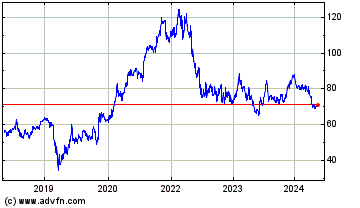Robert Half (NYSE:RHI)
Historical Stock Chart
From Feb 2020 to Feb 2025


